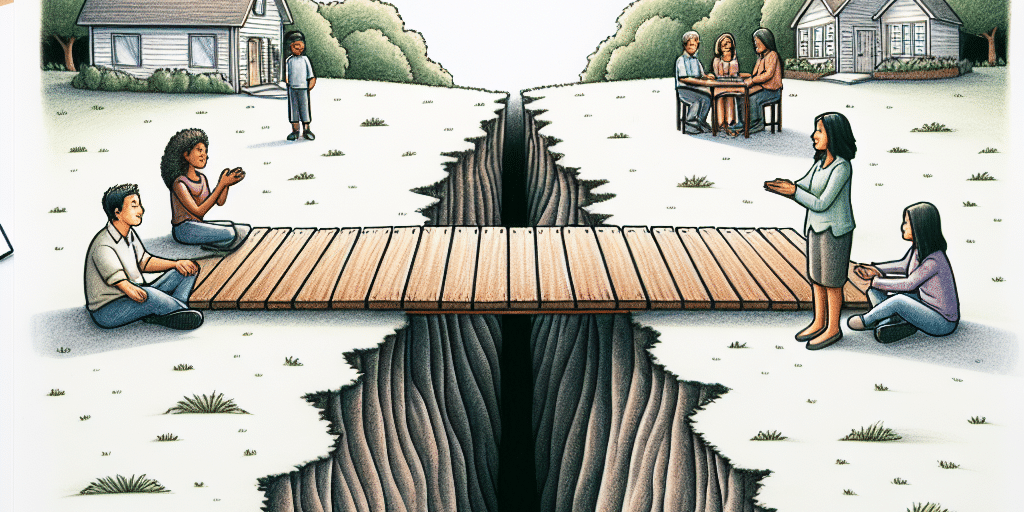Family conflicts are a universal experience, often arising from misunderstandings, different perspectives, or deep-rooted issues. These disputes can strain relationships, create barriers, and lead to prolonged emotional distress. However, effective communication has proven to be a powerful tool in bridging the divide and fostering an environment of understanding and resolution. In this article, we will explore the role of effective communication in family conflict resolution and provide strategies to cultivate healthier interactions.
Understanding Family Conflicts
Family conflicts may manifest in various forms, from minor disagreements to serious disputes. Common causes include differences in values, parenting styles, financial stress, and unmet expectations. Regardless of the source, the implications can be significant, affecting individual well-being and family dynamics.
Conflict is a natural part of human relationships, but the way families manage these disagreements can either strengthen or weaken their bonds. As emotions run high, communication can easily break down, leading to misunderstandings and hurt feelings. Recognizing the importance of effective communication is vital for resolving these conflicts.
The Importance of Effective Communication
Effective communication serves as the backbone of healthy family relationships. It fosters an environment where members feel valued, heard, and understood. The key components of effective communication include:
Active Listening: This involves fully concentrating on what the other person is saying without formulating a response while they speak. Active listening conveys respect and encourages open dialogue.
Empathy: Understanding and acknowledging the emotions and perspectives of others is crucial. Empathy bridges emotional gaps and helps family members feel supported and validated.
Clarity and Honesty: Expressing feelings and opinions clearly and truthfully minimizes misunderstandings. Families should strive to articulate their needs and concerns without resorting to blame or criticism.
Nonverbal Communication: Body language, tone of voice, and facial expressions can greatly affect the way messages are received. Being mindful of nonverbal cues is essential in preventing miscommunication.
- Constructive Feedback: Offering feedback geared towards solutions rather than criticism promotes a more positive dialogue. Constructive feedback encourages improvement and collaboration.
Strategies for Effective Communication in Family Conflicts
To leverage effective communication in resolving family conflicts, families can adopt several strategies:
Set Aside Time for Discussion: Creating a dedicated time and space for conversations can help prevent conflicts from escalating. Choosing a neutral environment can encourage open dialogue.
Establish Ground Rules: Agree on basic rules for discussing sensitive topics, such as refraining from interrupting, using “I” statements to express feelings, and avoiding derogatory language.
Practice Active Listening: Encourage family members to paraphrase what others have said to demonstrate understanding. This practice not only confirms that the message was received accurately but also validates the speaker’s feelings.
Focus on the Issue, Not the Person: Keep discussions centered on the specific conflict rather than attacking the individual. This approach reduces defensiveness and encourages collaborative problem-solving.
Embrace Vulnerability: Allowing oneself to be vulnerable can foster deeper connections. Expressing personal feelings and struggles can create a safe space for others to share their own experiences.
Involve a Neutral Third Party: Sometimes, external mediation may be necessary. Engaging a family therapist or mediator can provide an unbiased perspective and help families navigate conflicts constructively.
- Practice Forgiveness: Holding onto grudges can poison family relationships. Encourage family members to practice forgiveness, understanding that everyone makes mistakes.
Conclusion
Family conflicts are inevitable, but they do not have to lead to lasting damage. By committing to effective communication, families can navigate disagreements with grace and unity. The ability to express oneself openly, listen actively, and empathize with others lays the foundation for resolution and healing. As families work to bridge the divide through communication, they not only resolve conflicts but also strengthen their bonds, paving the way for deeper, more meaningful connections. In the end, the goal is not merely to resolve a dispute but to cultivate an environment where love, respect, and understanding can thrive.











